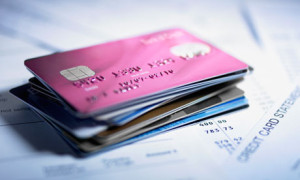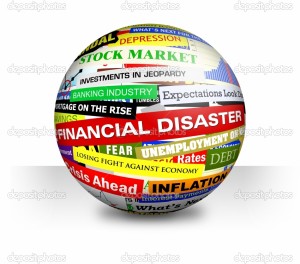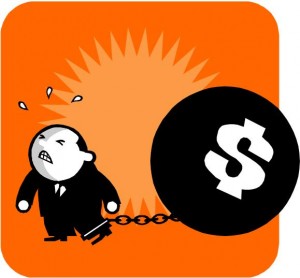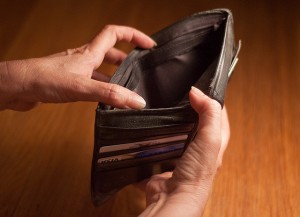March 6, 2013
 A credit card is a form of loan, albeit one involving more flexible terms and smaller sums of money than a personal loan or a mortgage. However, like other types of loans, credit cards also have interest rates. You need to understand more about how interest rates work, and how they will affect you and your finances, before taking out a credit card.
A credit card is a form of loan, albeit one involving more flexible terms and smaller sums of money than a personal loan or a mortgage. However, like other types of loans, credit cards also have interest rates. You need to understand more about how interest rates work, and how they will affect you and your finances, before taking out a credit card.
Why interest rates can be confusing
At the moment, credit card issuers can choose one of 14 different methods for charging interest. These methods involve calculating interest in different ways. So, if you have two credit cards which seem to have the same interest rates and you use them in exactly the same way, one could cost you more because the provider has decided to use a different method to work out that interest.
APR
Another reason why interest rates are confusing is because the industry uses acronyms such as APR to talk about interest. APR (Annual Percentage Rate) is a standard way to work out the cost of credit, taking into account the interest rate and any other charges. This rate shows you how much it will cost to borrow money over the course of a year.
It should be the case that credit cards with lower APRs give you the best deal, but it doesn’t always work out that way. This is because many cards start and stop charging interest on transactions at different times. However, most lenders offer a ‘typical APR’ when advertising credit cards. This is because when you apply for a credit card, you may be offered a rate based on your credit history and personal circumstances. According to a Guardian factsheet, banks only have to offer their advertised APR or a better rate to 66% of potential customers.
When interest rates will affect you
If you pay your balance off in full every month, you probably won’t need to worry about interest rates. However, interest rates will affect you if:
You only make minimum payments off your total balance every month
You pay anything less than the full balance each month
You use your credit card to take money out of a cash machine
If you meet any of these criteria, you should be looking to find the lowest interest rates when carrying out a credit card comparison. If you do your research and take the time to work out how much a credit card will cost you in the long term, you are likely to end up with a good deal and a way of borrowing money that suits you.
Tags:
credit,
Credit Card,
debt,
financial planning,
Interest Rates,
money,
Rates
February 21, 2013
 The unfortunate truth is that many people will find themselves short on cash at some point this year. Even the most financially responsible individuals may run into hard times, and they may need access to a quick source of money for a few days. For example, when your child is sick or you are in a car accident, you may be faced with lost income as well as various expenses. This and many other events can and do happen, and they can be costly. Some people may have enough money saved in their savings account to get by, but if you don’t, what should you do to get over this rough patch?
The unfortunate truth is that many people will find themselves short on cash at some point this year. Even the most financially responsible individuals may run into hard times, and they may need access to a quick source of money for a few days. For example, when your child is sick or you are in a car accident, you may be faced with lost income as well as various expenses. This and many other events can and do happen, and they can be costly. Some people may have enough money saved in their savings account to get by, but if you don’t, what should you do to get over this rough patch?
Credit Cards
Credit cards may be the source of quick money that many people initially will consider. You may have one or more credit cards in your wallet right now that you can pull out and use at a moment’s notice. However, keep in mind that a cash advance on these cards can be very expensive, and often, there is a higher interest rate and an extra fee associated with this. Furthermore, if your cards are maxed out, this is not an option for you. As a final note, consider how long it may take you to pay your credit card balance off. Any new charges to your account today will increase your minimum monthly payment until the balance is paid in full, and this can affect your budget for months to come.
Paying Bills Late
If you don’t have money available to pay your bills, it may have crossed your mind to simply not pay those bills. Eventually, you will get caught up, and you can pay your bills as funds become available. However, keep in mind that there are costs associated with simply not paying the money that you owe to your creditors. Many creditors will add a sizable late fee to your account balance, and they will continue to add onto the total you owe. For example, if you owe $100 to a creditor today, that creditor may charge a $30 late fee for not paying your account. Next month, you may owe $200 plus the $30 late fee. This can be a costly route to take, and it can result in you digging yourself into a financial hole that can be difficult to get out of. Furthermore, your credit rating may be ruined if you fail to make your payments on time, and this can affect your ability to obtain affordable financing for many months or years.
Short-Term Loan
A final option to consider is to apply for a short-term loan. Canada cash loans from www.CashLoans.ca are one of these options. These loans do have typically higher interest rates than long-term loans, but they have a short term and can provide you with access to the cash you need in a short period of time. You will not have to contend with late fees, increases to minimum monthly payments or how much credit you have available on your credit cards.
Each financial situation is unique, so it is important to consider how each of these options may be applied to your life. Ultimately, many individuals will have access to one or more of these options, and you may keep these points in mind as you make a decision that is best for you.
Tags:
Cash Flow,
debt,
economy,
expenses,
finance,
money,
planning
February 16, 2013
 Dropping the financial ball is something that may happen inadvertently when we allow debt to go farther than we can run with it. Staying away from debt is sometimes hard because countless expenses sum up through the month and control can easily slip out of our hands. However, you can prevent this from happening and yet stay away from debt by simply analyzing your actual financial situation and the way that your organize your expenses.
Dropping the financial ball is something that may happen inadvertently when we allow debt to go farther than we can run with it. Staying away from debt is sometimes hard because countless expenses sum up through the month and control can easily slip out of our hands. However, you can prevent this from happening and yet stay away from debt by simply analyzing your actual financial situation and the way that your organize your expenses.
Planning is the Key
You cannot anticipate unexpected expenses coming your way, but you can plan those that occur regularly to find out how much money you have to work with for something else. Creating a monthly budget is a great aid, because you cannot only plan the payment of bills, food, gas and daily living expenses, but also serves to determine how much money you can save, and make that money a cash fund to be used for unexpected expenses rather that borrowing money when an emergency takes place.
Avoid Loans Above All Else
No matter, if you are considering taking out an “inoffensive” payday loan, a personal loan, car loan, business loan, mortgage or home loan. Loans are usually the starting point for major financial problems even if you have the certainty that you can repay your debt. People often forget that if they are borrowing $100 will not have to repay $100 but a considerable amount after interest rate, finance fees and particularly with payday loans, very high interest rates.
Plastic Money is Dangerous
Another source of debt can be found in your credit cards. The more credit cards you have, the easier it is that you can become trapped in debt sooner or later. Be wise to use your credit cards only when you need them, even if you have only one, but if this not your case, determine which one charges the least in interest rates and make this your main credit card, but only to be used when you need are forced to pay with a credit card.
Cash is Still the Leader
No matter if people turn their heads back to you when paying with cash in a restaurant, do it anyway and you will be far from dropping the financial ball, as they probably have done sometimes. Cash is worth more than plastic money because it has immediate acquisitive power, can be use to buy almost anything, and does not generate interests.
If you stick to these simple principles, you will be on the right pathway to stay away from debt, and you can learn many other tips that will enhance your household economy.
Tags:
budgeting,
debt,
economy,
financial planning,
money,
personal finance,
savings
January 18, 2013
 A lot has been written about strategies to get out of debt, plan a budget, and stick to it. If you want to be one of those success stories of people who have clawed their way out of debt on their own, that’s great. If you’re digging out of a particularly deep hole, or your shovel is disproportionately small, you may quickly realize that getting out of debt on your own is an all but impossible task.
A lot has been written about strategies to get out of debt, plan a budget, and stick to it. If you want to be one of those success stories of people who have clawed their way out of debt on their own, that’s great. If you’re digging out of a particularly deep hole, or your shovel is disproportionately small, you may quickly realize that getting out of debt on your own is an all but impossible task.
As calls from creditors start harassing you at all hours of the day and you watch your monthly statements steadily increase, it may seem as if bankruptcy would easily solve all your problems.
This is rarely the case, so today we’re going to talk about the range of professional options available to you. In Canada debt program options include: Credit Counseling, Debt Consolidation Loans, Debt Settlement, Consumer Proposals, and finally, when all else has failed, Bankruptcy.
A professional brings years of experience, a greater knowledge of your options, and, most importantly, a non-biased approach to your finances. They’ll help you examine your income and expenses and come up with a short and long-term plan to get you out of debt and keep you out.
This may also include negotiating with creditors in an effort to reduce the amount of interest you pay, lowering the monthly payments to make them more manageable, and lengthening the deadline for payback.
One thing credit counseling won’t help with is actually reducing the amount you owe. That’s fine – you DO owe the money, but if you’re truly in trouble, you might need a more drastic option.
Debt consolidation takes all of your debts and pays them off under a single loan. That loan is now your only debt. This is incredibly helpful because you’ll only have one monthly payment, which is easier to track, plan for, and pay on time. It’s also possible to negotiate a lower overall interest rate. On top of all that good news, you can also lower your monthly payment to something you can manage more easily.
The drawback to a lower monthly payment is that it could end up taking longer to pay your debt consolidation loan off than it would just paying your debts back.
Hiring a debt settlement specialist to negotiate your debts might be the best decision you can make. By speaking to each of your creditors, they’ll work on your behalf to lower the total amount you owe, lower interest rates, and set up comfortable monthly payments.
Despite it’s rather passive name, this is an official agreement between you and your creditors to settle your unsecured debts. You’ll work with a licensed bankruptcy trustee, and this option is pretty much the last step before bankruptcy and WILL negatively affect your credit score and borrowing ability.
Tags:
Credit Card Debt,
debt,
Debt Problems,
financial planning,
money,
personal finance
January 7, 2013
 With today’s troubled economic climate and with the fact that things seem to cost more than ever before, it’s incredibly easy to find yourself in debt. Tanked housing values, a tight lending market and high unemployment make it tougher than ever before to make ends meet. Unfortunately, for many, the relief of tapping into funds from credit cards, home equity and personal loans resulted in mounds of un-repayable debt.
With today’s troubled economic climate and with the fact that things seem to cost more than ever before, it’s incredibly easy to find yourself in debt. Tanked housing values, a tight lending market and high unemployment make it tougher than ever before to make ends meet. Unfortunately, for many, the relief of tapping into funds from credit cards, home equity and personal loans resulted in mounds of un-repayable debt.
This is a problem faced by people from all walks of life—from military veterans to teachers and even seemingly successful lawyers, doctors, and the like. The good news is that no matter who you are, what you do, or even how bad your debt problems are, you can take control of the situation and find your way out of debt for good.
Know Where Your Money Goes
One of the major reasons that people find themselves in debt is because they are not mindful of their spending habits. Starting right now, however, you can change all that. Spend a few days or a week writing down every penny that you spend and what you spend it on.
You’ll quickly see the areas where your spending is out of control, and that can help you choose areas to cut back. Need help regaining control of your finances? SpendingProfile.com is one great online resource for cataloging your spending habits.
Budget Your Money
Just as you need to see where you’re spending the majority of your money, you should also be aware of what bills you have and of your overall income. Take the time to sit down and write out a monthly budget. Pay attention to how much you earn, how much you have to pay for each bill and when bills are due. If you actually do have the money to handle your debts, you’ll be able to get back on track easily; if you don’t, you’ll know it’s time to turn to other tactics.
Working with Creditors
Often, when individuals are overwhelmed with debt, they choose to ignore their financial problems. When those creditors call, they refuse to answer the phone or they toss those past due bills in the trash can. This is a big mistake, however.
In many cases, if you’re willing to talk with your creditors and explain your situation, you can work out some kind of payment arrangement that’s better suited to your needs. Financial Library offers a great guide to dealing with your creditors.
Filing for Bankruptcy
Sometimes, people get so far into debt there’s really no easy way out. When this is the case, it may be time to consider filing for bankruptcy. While bankruptcy is often regarded as a financial dead end and one that leads to horrible credit, it actually helps people get back on their feet with a fresh financial start.
It’s not easy, however, and many applicants don’t qualify. Speak with a credible bankruptcy attorney to find out if you do, and, if so, what your next step should be.
Adrienne Erin is a blogger and aspiring author. When she’s not blogging about tech and social media, you might find her practicing her French, whipping up some recipes she found on Pinterest, or obsessing over vintage postcards and stamps.
Tags:
debt,
debt freedom,
economy,
financial planning,
money,
personal finance
 A credit card is a form of loan, albeit one involving more flexible terms and smaller sums of money than a personal loan or a mortgage. However, like other types of loans, credit cards also have interest rates. You need to understand more about how interest rates work, and how they will affect you and your finances, before taking out a credit card.
A credit card is a form of loan, albeit one involving more flexible terms and smaller sums of money than a personal loan or a mortgage. However, like other types of loans, credit cards also have interest rates. You need to understand more about how interest rates work, and how they will affect you and your finances, before taking out a credit card.




Recent Comments